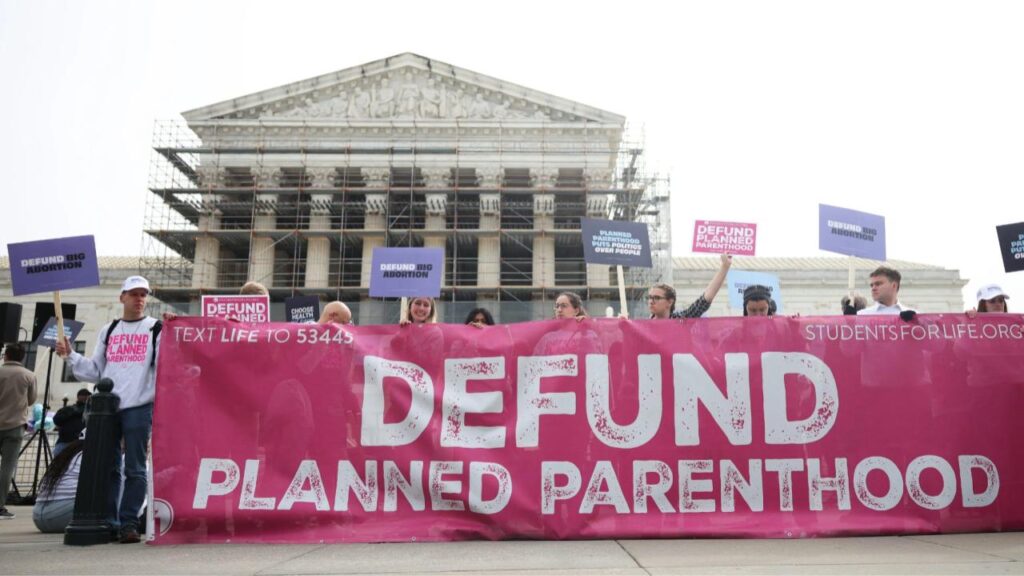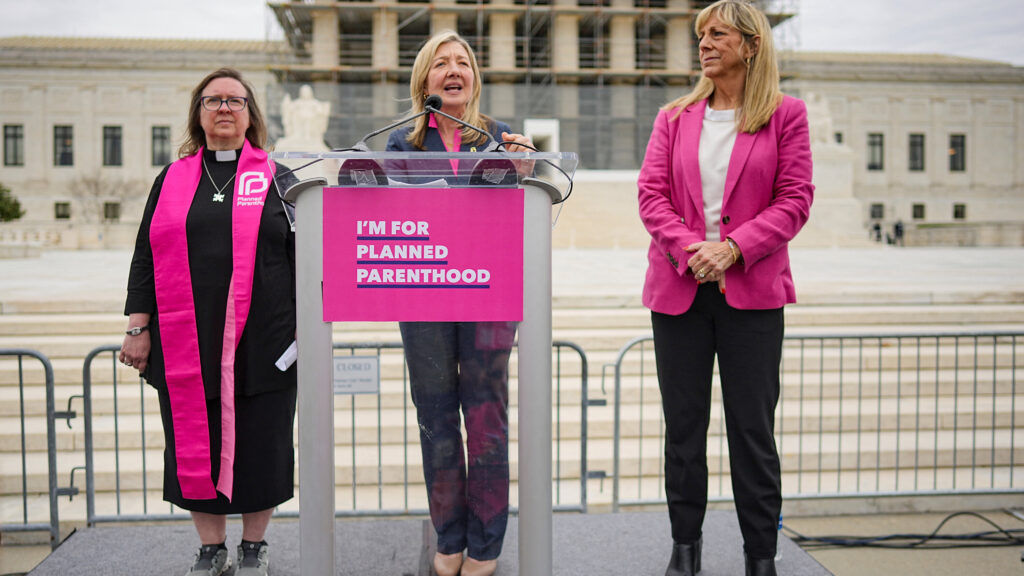In a landmark decision, the U.S. Supreme Court recently ruled in favor of South Carolina’s bid to cut state funding for Planned Parenthood. The ruling marks a significant legal and political victory for the state, sending a ripple through the ongoing national debate surrounding abortion, women’s healthcare, and the role of state governments in funding reproductive services. While the decision has been hailed by pro-life advocates, it also raises serious concerns about access to healthcare for low-income women across the country.

This legal victory highlights a crucial moment in the long-standing conflict between those advocating for women’s reproductive rights and those seeking to limit access to abortion services. The ruling’s impact could shape the funding landscape for Planned Parenthood and similar organizations, while also influencing how other states approach abortion-related funding in the future. But what exactly does this decision mean for women’s health, and how did South Carolina’s argument succeed in front of the nation’s highest court?
Supreme Court Case to Cut Funding for Planned Parenthood
| Insight | Stat/Fact |
|---|---|
| Supreme Court ruling | The Supreme Court ruled 5-4 in favor of South Carolina. |
| Impact on Planned Parenthood | This ruling could lead to significant cuts in state funding for Planned Parenthood. |
| Abortion-related funding cuts | This decision is expected to set a precedent for other states seeking to defund Planned Parenthood. |
The Legal Battle: South Carolina’s Bid to Defund Planned Parenthood
In 2025, South Carolina Governor Henry McMaster pushed forward with legislation that would cut all state funding to organizations that provide abortions or refer women for them. The law specifically targeted Planned Parenthood, the nation’s largest provider of reproductive healthcare, which is well known for its advocacy and provision of abortion services. Despite Planned Parenthood’s role in providing a variety of healthcare services, including cancer screenings, STD testing, and contraceptive options, the organization has been a lightning rod for pro-life and conservative activists due to its involvement in abortion services.
The South Carolina case was built on the argument that taxpayers should not be forced to subsidize an organization that performs abortions, even if the funds are used for other healthcare services. The state’s legal team argued that its citizens’ moral objections to abortion justified the decision to cut funding, even though Planned Parenthood claimed that the law violated the constitutional rights of low-income women who rely on the organization for basic health services.
The crux of the legal battle centered on whether the state could constitutionally limit funding for a legal healthcare provider due to its association with abortion services. South Carolina contended that it had the right to choose where to allocate state funds, especially when it came to issues of ethical concern like abortion.
Supreme Court’s Ruling: A Divisive Decision
The Supreme Court’s decision was narrow but decisive, with a 5-4 vote in favor of South Carolina. In the majority opinion, the justices concluded that the state had the right to cut funding to Planned Parenthood, affirming the legal argument that government entities can restrict funding to organizations involved in certain activities, even if those activities are legally protected under the Constitution.
The ruling marked a significant shift in the judicial landscape surrounding abortion-related funding. In the past, the Court had upheld federal protections for abortion access and associated funding, most notably through landmark rulings like Roe v. Wade. However, with the changing makeup of the Court over recent years, the decision is seen as part of a broader trend toward limiting abortion access and funding at both state and federal levels.
Justice Clarence Thomas, who wrote the majority opinion, stated that “states must be able to determine the use of taxpayer funds in a manner consistent with the views of their citizens.” His opinion suggests that South Carolina’s action was not only legal but a legitimate exercise of its authority to manage taxpayer money in ways that reflect the values of the state’s residents.
However, dissenting justices, led by Justice Elena Kagan, argued that the ruling undermined women’s access to comprehensive healthcare. Kagan expressed concern that this decision would disproportionately impact low-income women who already face barriers to accessing quality reproductive care.
The Wider Implications: How This Decision Shapes Future Policy
South Carolina’s victory could serve as a precedent for other states seeking to limit funding for Planned Parenthood and other organizations that provide abortion services. Since the ruling applies to state funding, it has immediate implications for how state governments across the U.S. allocate their budgets for reproductive health services.
Several other states, including Texas, Louisiana, and Florida, have made similar attempts to cut funding for Planned Parenthood over the years. With the Supreme Court’s latest decision, these states now have a clearer path to pursue such measures, potentially leading to more cuts to essential reproductive health services for millions of Americans.
The decision also calls into question the role of the federal government in intervening in such matters. Federal laws, including the Medicaid program, had previously required states to cover healthcare providers like Planned Parenthood, as long as they met specific healthcare requirements. This ruling suggests that states may now have more latitude in restricting access to these services, even if they are part of federally funded programs.

What This Means for Planned Parenthood
Planned Parenthood, which has been embroiled in legal battles for years over abortion access, is facing new challenges in the wake of this ruling. The organization has vowed to continue its mission of providing healthcare to women, regardless of the Supreme Court’s decision. However, cutting state funding means that millions of women who rely on Planned Parenthood for affordable healthcare could be left without essential services.
In response, Planned Parenthood has called for increased federal support to fill the gap left by state funding cuts. The organization has also expressed concern that this decision could set the stage for further restrictions on abortion access, particularly in Southern and Midwestern states where conservative lawmakers are pushing for more stringent abortion laws.
Despite the challenges ahead, Planned Parenthood remains committed to fighting for reproductive rights. The organization continues to advocate for broader access to birth control, cancer screenings, and general health services, which many argue are essential components of women’s healthcare, regardless of one’s stance on abortion.
The National Conversation on Abortion and Women’s Healthcare
This decision is another chapter in the ongoing national conversation on abortion and women’s healthcare. For many, it represents a political victory in the fight against abortion, while for others, it signals a worrying trend toward restricting access to healthcare services that women need.
As states move to implement similar policies, it is essential to closely watch the broader implications for women’s health, particularly those in underserved communities. Without access to trusted providers like Planned Parenthood, many women could face greater challenges in accessing not only abortion services but also vital preventive care and health screenings.
In conclusion, South Carolina’s triumph in the Supreme Court is more than just a victory for anti-abortion advocates. It marks a pivotal moment in the ongoing battle over women’s reproductive rights and could pave the way for further restrictions on abortion-related services across the U.S. This case underscores the ever-present tension between states’ rights and federal protections, with profound implications for healthcare access and the political landscape moving forward.
FAQs
What does the Supreme Court’s ruling mean for Planned Parenthood?
The Supreme Court’s ruling allows South Carolina to cut state funding for Planned Parenthood, which could affect the organization’s ability to provide services like cancer screenings, STD testing, and contraceptives to low-income women.
Will other states follow South Carolina’s lead?
Yes, other states with conservative lawmakers are expected to follow South Carolina’s lead and introduce similar measures to cut funding for abortion-related services, including Planned Parenthood.
How does this decision affect women’s access to healthcare?
The ruling could limit women’s access to essential healthcare services, particularly for those in low-income communities who rely on organizations like Planned Parenthood for affordable health services.
What are the next steps for Planned Parenthood?
Planned Parenthood is likely to seek federal support to offset the impact of state funding cuts. The organization remains committed to providing healthcare services and advocating for reproductive rights.






